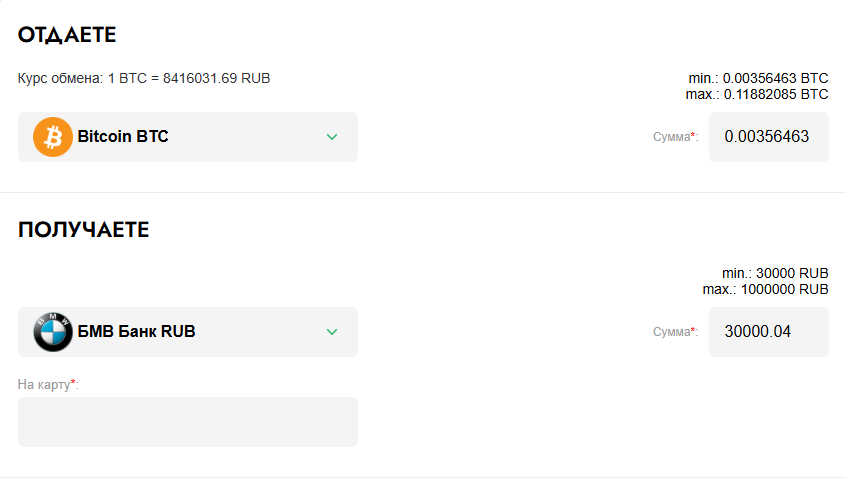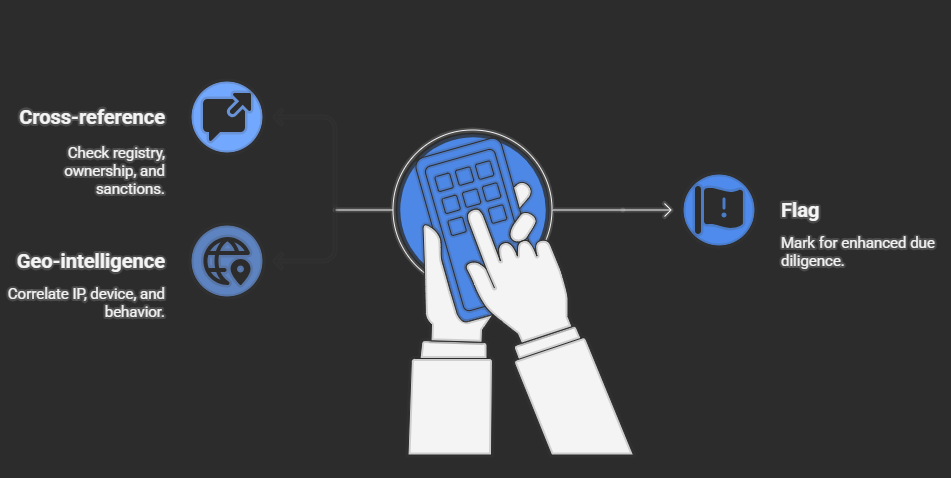It’s not every day you expect to see BMW Bank LLC, a subsidiary of the global automaker’s financial arm, appearing in the datasets of a crypto exchange.
Yet that’s exactly what some recent compliance reviews and transaction monitoring logs have revealed, a name that doesn’t belong in the crypto ecosystem popping up amid suspicious payment flows.
What Is BMW Bank LLC?
BMW Bank is the Russian representative of BMW Financial Services, founded in 2008 and fully owned by BMW Österreich Holding GmbH (Austria) ,itself part of the BMW Group.[source]
Its mandate has always been straightforward: provide auto loans, leasing services, and dealer financing across the Russian market. There’s no public record or business license linking the company to cryptocurrency trading, digital asset custody, or any kind of blockchain service.
In other words, it’s a traditional captive finance subsidiary, not a fintech.

So Why Does It Appear in a Crypto Exchange Dataset?
There are three main explanations, each carrying different risk implications:
- Data Mislabeling or Registry Overlap
Many exchanges use automated KYC enrichment databases (LexisNexis, Refinitiv, OpenCorporates, etc.).
These systems can sometimes pull in unrelated corporate entries based on fuzzy name matches or outdated registries , so the presence of “BMW Bank” could, in theory, be a simple metadata artifact.
But that explanation only holds if the reference is purely informational and not linked to actual transactions. - Indirect Fiat Settlement Pathways
A more concerning possibility is that a third-party payment processor or OTC broker used accounts under the name BMW Bank, or an entity pretending to be it, to route fiat settlements linked to crypto trades.
Since 2022, many Russian payment institutions have operated through layered corporate fronts, using familiar Western brand names to mask the real origin of funds and avoid immediate sanctions detection. - Dormant Account or Proxy Reuse
Even if BMW Group officially froze its Russian operations in 2022, legacy accounts or sub-accounts under BMW Bank LLC may still exist.
If such accounts were ever accessed, sold, or repurposed by intermediaries, they could easily end up in gray-market payment channels , a known typology in sanctions evasion and “shadow banking” through local Russian financial infrastructure.
Why It Matters
Its presence in any crypto exchange dataset raises several compliance concerns:
- Sanctions exposure -Russian entities remain subject to extensive EU, UK, and U.S. restrictions.
- Misuse of brand legitimacy - Entities using “BMW Bank” naming can create false legitimacy for laundering routes.
- Data integrity risk - Automated enrichment tools may falsely connect neutral entities to high-risk activity, skewing KYT accuracy.
- Potential for proxy banking -Financial infrastructure left dormant in sanctioned regions often becomes a gateway for illicit crypto-fiat conversion.
The Broader Pattern
This case reflects a growing pattern observed across 2023–2025, where Western corporate subsidiaries in Russia are being repurposed by intermediaries to facilitate gray-market transactions. In parallel, local OTC desks and informal exchangers increasingly layer legitimate-sounding business names into their on- and off-ramp operations to obscure the true flow of funds. At the same time, VPN-obscured traders are mimicking EU or U.S. geolocations while actually settling through Russian banking infrastructure, further complicating the detection of sanctioned activity. The broader geopolitical reality is that financial institutions, even those dormant or abandoned, can become digital conduits once their corporate branding and technical infrastructure fall into the wrong hands.
KYT and Compliance Takeaway
When corporate banks like BMW Bank (Russia) appear in crypto datasets:

- Don’t assume coincidence.
- Cross-reference the entity’s registry, ownership, and sanctions exposure.
- Flag for enhanced due diligence as “Russian financial entity potentially misused for crypto payments.”
- Use geo-intelligence tools to correlate IP, device, and counterparty behavior patterns surface-level name screening is no longer enough.
Final Thought
In a world where even dormant subsidiaries can become vectors for sanctions evasion, the lesson is clear: Crypto compliance is no longer just about wallets, it’s about geography, corporate registries, and context. Because when a car-financing bank from Moscow shows up in your exchange data, it’s not just a data glitch.
FAQs
1. Why would a traditional bank name appear in crypto exchange ?
This often happens through instant exchange platforms or OTC intermediaries that use indirect banking channels for fiat settlements. These platforms sometimes route payments through local or corporate accounts, including those with familiar names, to make transactions appear legitimate.
2. Are instant exchanges a common risk vector in such cases?
Yes. Instant exchanges and crypto payment processors are frequently exploited to blur the link between fiat and crypto flows. They often rely on lightly regulated payment partners or dormant bank accounts, making them ideal for sanctions evasion and layering schemes.
3. How should compliance teams respond to these patterns?
Compliance officers should analyze counterparty banking details, IP data, and transaction velocity for signs of indirect Russian exposure. If entities like BMW Bank (Russia) appear, the case should be flagged for enhanced due diligence and correlation with instant exchange activity or cross-border settlement paths.
All research content and accompanying reports are provided for informational purposes only and should not be relied upon as professional advice. Accessing these materials does not create any professional relationship or duty of care. Readers are encouraged to consult appropriately qualified professionals for guidance. We uphold the highest standards of accuracy in all the information we provide. For any questions or feedback, please contact us at contact@nominis.io.






.png)